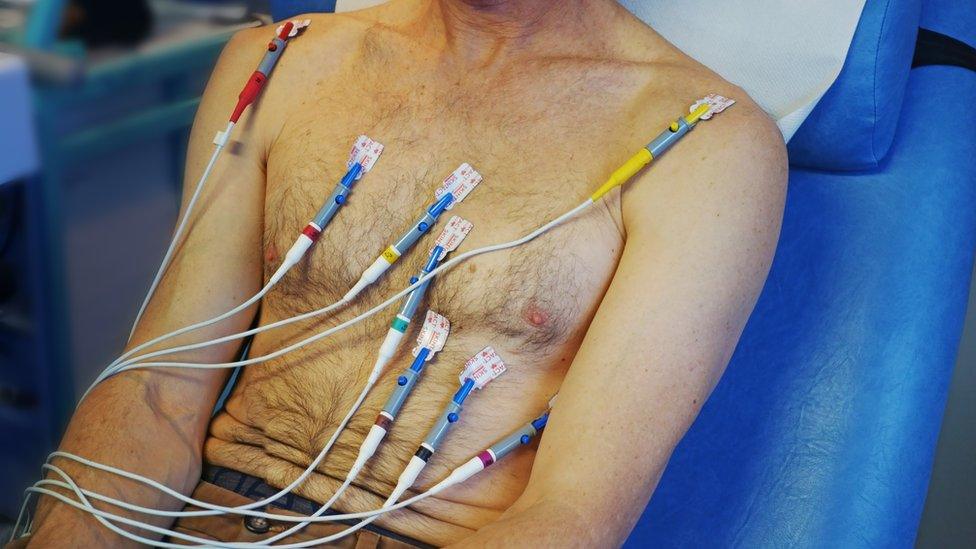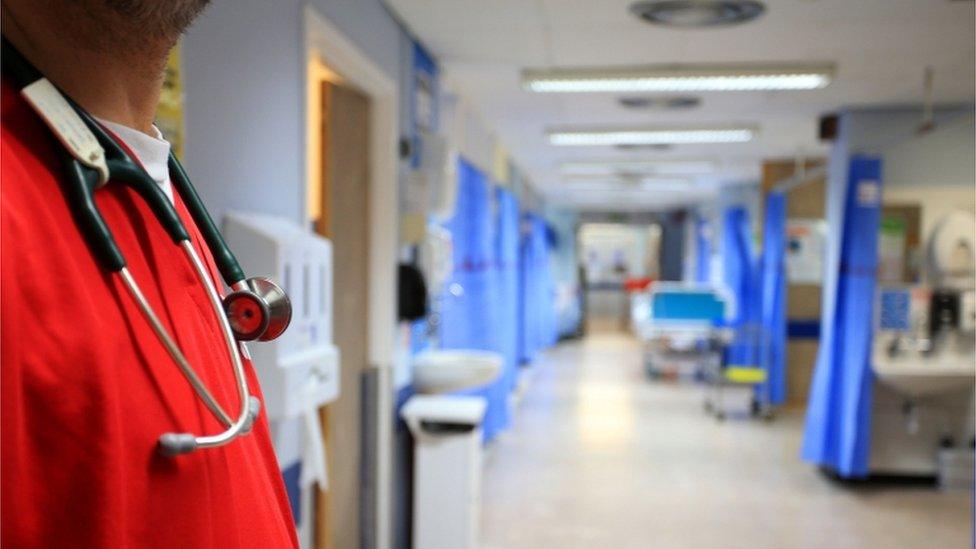Dumfries study shows heart patient numbers more than halved under lockdown
- Published

Cardiology services saw a reduction in every area of provision under lockdown
The number of patients going to cardiology services at a Scots hospital for serious heart problems more than halved during lockdown.
Research at Dumfries Infirmary also showed the number of heart attacks diagnosed fell by 40%.
The study in online BMJ journal Open Heart, external said there were likely to be "various reasons" for the change.
Researchers warned cardiology services could face a "significant increase in workload" as restrictions eased.
While the findings were based on only one site they were said to be consistent with other studies of the health consequences of lockdown measures.

The study was based on findings at Dumfries Infirmary
"Therefore, it is likely that similar changes will be seen in other medical and surgical specialties," researchers concluded.
They looked at key performance indicators in cardiology services in Dumfries and support services at the Golden Jubilee Hospital in Glasgow before and after lockdown.
Overall, they found "significant reductions" in every area of service provision.
During the first month of lockdown, the numbers of people seen for chest pain or breathlessness fell sharply, with cardiology ward and coronary care unit (CCU) admissions falling to 39 from 83 before lockdown - a drop of 53%.
Similarly, the number of patients diagnosed with a heart attack fell by 40% from 30 to 18.
Researchers said that while levels rose during the second month of lockdown they were still below pre-lockdown levels suggesting an ongoing fall in the overall number of patients presenting to cardiology services.
'Long-lasting legacy'
There were various reasons for these changes, such as the restructuring and prioritisation of NHS services, reduced access to primary care, and patients' reluctance to seek medical help due to fear of catching the virus, the study suggested.
It found one positive consequence of the changes brought in to deal with the virus had been the central role of technology in the delivery of care.
During lockdown, clinicians at the Dumfries hospital adopted phone and video consultations to minimise infection risks to patients and staff while new and return clinic appointments were triaged into virtual or face-to-face clinics
The use of virtual clinics will be a "long-lasting legacy," researchers added.
However, they warned that heart disease continued to be the leading cause of death nationally and cardiology services needed to prepare for a "significant increase in workload" in the recovery phase.
- Published25 August 2020
